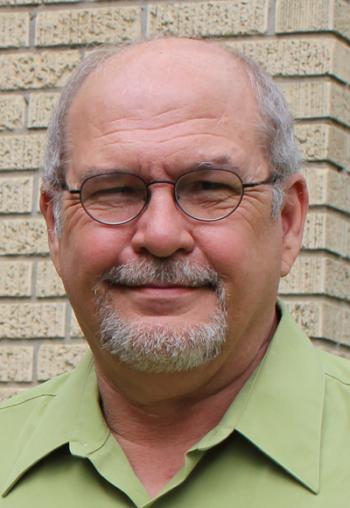God’s children: Never strangers
The question was “what might it mean to live as a stranger in ministry?”
I was at a retreat, and we were asked to ponder the early monks, but I guess we might be talking about itinerant ministry just as easily. In the United Methodist itinerant system, where we are often moved before the clergy person is ready and/or moved when the clergy person doesn’t want to but the local church is. Thoughts and ideas and less than ideal pondering makes us strangers somewhere in the every three-to-five years department.
We come, we learn names as quickly as we can, but ultimately it is our spouse that helps us make it through that wondering period of loneliness and “stranger-ism.” Call it a three-month period of lingering darkness.
If we are introverts, we suffer all the more.
It takes time to walk through the desert of strangers.
I believe it might be better to be a stranger with purpose. Discovering who “they” are might be more than a petite goal. It might be, just might be, a way to live rather than a listing of those folks around us that we are attempting to memorize “just because.”
I remember, oh those long years ago, reading “Stranger in a Strange Land.” The book, written by great science fiction writer Robert A. Heinlen, tells the story of Valentine Michael Smith, a human who comes to Earth in early adulthood after being born on the planet Mars and raised by Martians.
The book explores, according to Wikipedia (since I remember mostly the title and the name of the central character in all honesty, his interaction with — and eventual transformation of — terrestrial culture. The book’s title is an allusion to the phrase in Exodus 2:22. Some folks say this is the most famous science fiction novel ever. I suspect they are right.
Heinlein worked on the story on and off for a decade or so, writing at one point 220,000 words before they were whittled down to 160,067. I certainly, in all my work and all my writing, have never written 220,000 words and more telling have never carved out 60,000 words from the best and worst of my work. That would be like taking a limb or two from my children. Couldn’t do it on my best days. Just couldn’t.
What I find most interesting is how Heinlen used religion in the book. The story focuses on how the book is set in a post-third world war United States where organized religions are politically powerful.
Long-story told short, Smith understands the concept of God as “one who groks,” which includes every extant organization. This leads him to express the Martian concept of life as the phrase “Thou art God.” Smith becomes a celebrity, explores many religions, eventually starts a Martian-influenced “Church of All Worlds,” is arrested, escapes and returns to his followers, is killed by a mob, and from the after-life is shown to be an incarnation of the Archangel Michael.
Though that sounds, uh, boring, I assure you it is not. As I remember from my junior college days, it is an inventive, lovely book.
Mostly what I remember is the best title of all time.
It speaks to me, I think, of how I’ve lived my life. I’ve always felt alone, even when surrounded by many. That’s the introvert. I’ve felt loved, but I’ve felt alone. Of course, I recognize how God has walked with me, and even called me, but still I’ve felt alone.
It is in the how I’ve felt alone, though, that changed everything.
When I chose to be alone, I was filled with God’s love — despite myself. When I was alone by still waters, I was filled with a purpose that surpasses even my limited understanding of who God is and who He wants me to be.
But when I was alone despite my feelings, alone when I didn’t want to be, alone in a room of loving folks who wanted nothing more than to see me through my depression, or my addiction, or my lack of understanding, then I was a failure to the nth degree.
Choosing versus losing, choosing over losing, choosing when I didn’t see or was incapable of seeing, that’s the difference. It is a real, literal and substantial difference. It took me decades perhaps to see, feel, touch, and calibrate those facts.
We are never strangers in a strange land (oh, we are most definitely in a strange land today) because we are brothers and sisters, children of God.
Period. All of us.
Billy Turner is a pastor of the United Methodist denomination and a retired journalist.
- Log in to post comments

